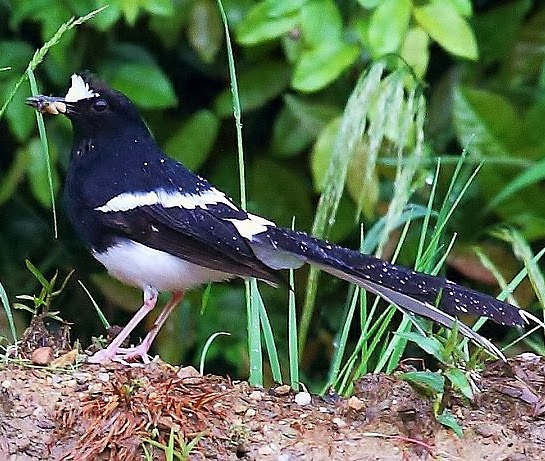 |
| Photo by Myron Tai (Oriental Bird Images) |
Common name:
white-crowned forktail (en); rabo-de-tesoura-de-coroa-branca (pt); énicure de Leschenault (fr); torrentero coroniblanco (es); weißscheitel-scherenschwanz (de)
Taxonomy:
Order Passeriformes
Family Muscicapidae
Range:
This species is found in from central and southern China, through extreme north-eastern India and Indochina and into the Indonesian islands of Borneo, Sumatra and Java.
Size:
These bird are 28 cm long and weigh 30-52 g.
Habitat:
The white-crowned forktail is mostly found along rivers and streams in moist tropical forests, also using moist scrublands. They are present from sea level up to an altitude of 1.200 m.
Diet:
They feed on aquatic insects and their larvae.
Breeding:
White-crowned forktails breed in April-June. The nest is made of moss, leaves and rootlets, and placed on the ground among rocks, tree roots or in overgrown banks. The female lays 3-4 cream-coloured eggs with reddish-brown speckles, which are incubated for 17-19 days. The chicks fledge 15-17 days after hatching.
Conservation:
IUCN status – LC (Least Concern)
This species has a very large breeding range and is described as generally common, although uncommon in Sumatra and in parts of Borneo. The population is suspected to be stable in the absence of evidence for any declines or substantial threats.







